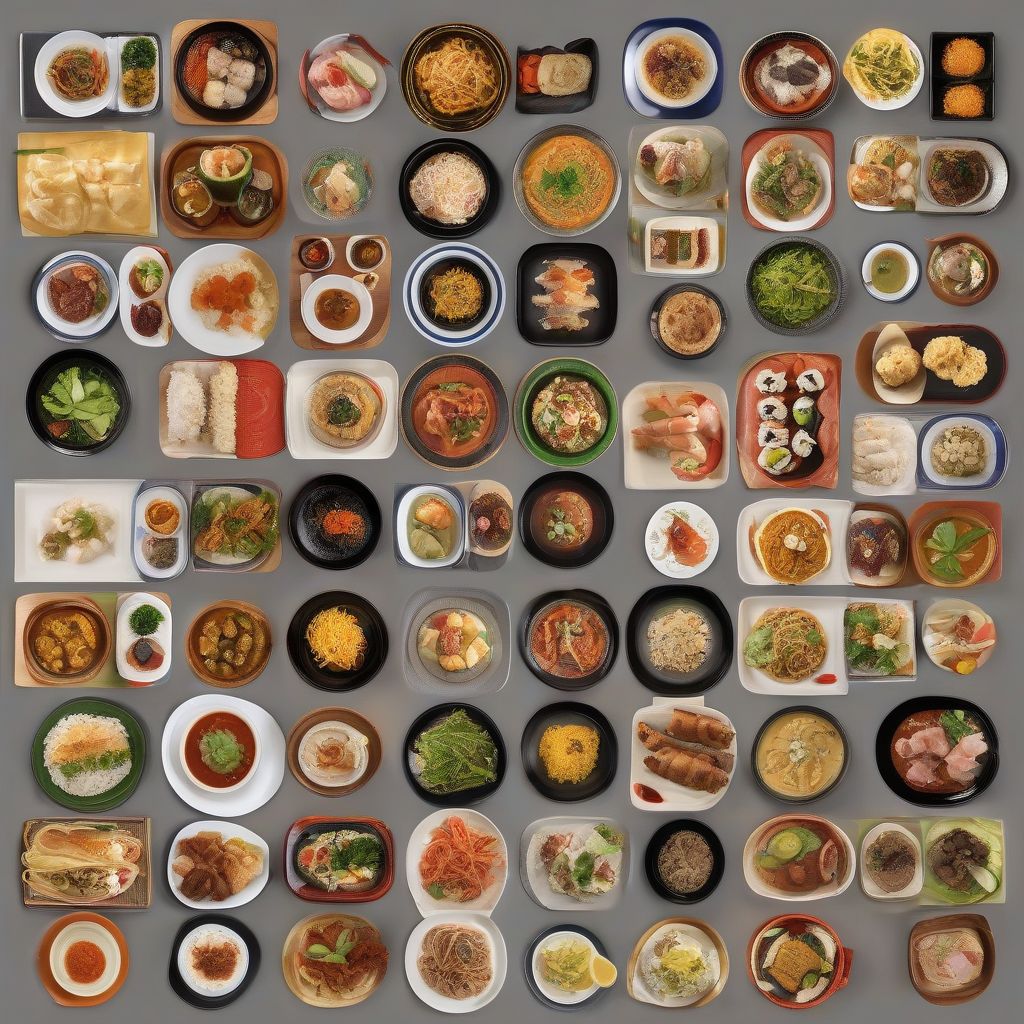Have you ever noticed how a simple meal can evoke a powerful wave of nostalgia, transporting you back to a cherished family gathering or a memorable trip abroad? Food is far more than just sustenance; it’s a cornerstone of cultural identity, a vessel of tradition, and a powerful symbol of community and belonging. Let’s explore the fascinating world of food and its profound cultural significance across the globe.
Food as a Cultural Expression
Food is a universal language that speaks volumes about a culture’s history, values, and beliefs. From the elaborate spice blends of Indian cuisine to the simple elegance of Japanese sushi, every dish tells a story. These culinary narratives are passed down through generations, preserving ancestral knowledge and connecting us to our roots. As renowned food writer Michael Pollan wisely said, “Food is not just fuel. Food is about family, food is about community, food is about identity. And in the end, food is about joy.”
Religious and Spiritual Significance
In many cultures, food plays a central role in religious and spiritual practices. Think of the Seder meal in Judaism, a symbolic feast that commemorates the Israelites’ liberation from slavery. Or the breaking of the Ramadan fast in Islam, a time of communal sharing and spiritual reflection. These rituals not only nourish the body but also the soul, reinforcing shared beliefs and strengthening community bonds.
Festivals and Celebrations
Food is often at the heart of festive celebrations, marking special occasions and bringing people together. From Thanksgiving turkey in the United States to the colorful mooncakes shared during the Mid-Autumn Festival in China, these culinary traditions add flavor and meaning to our celebrations. These shared meals create lasting memories and reinforce a sense of belonging.
The Role of Food in Social Interactions
Food isn’t just something we consume; it’s something we share. Meals are often a focal point for social gatherings, fostering connection and communication. Think of the Italian tradition of long, leisurely Sunday lunches, or the Japanese tea ceremony, a ritualized expression of hospitality and respect. These shared meals create opportunities for conversation, bonding, and the strengthening of social ties.
Family Traditions and Recipes
Within families, food traditions and recipes are often treasured heirlooms, passed down through generations. These culinary legacies connect us to our ancestors and provide a sense of continuity and belonging. A grandmother’s secret cookie recipe or a family’s traditional holiday dish can evoke powerful memories and emotions, strengthening family bonds across generations.
Food and Identity
What we eat can also be a powerful statement about who we are. Our food choices can reflect our cultural background, our ethical values, and even our social status. From the vegan movement to the growing interest in locally sourced food, our dietary choices are increasingly becoming a way to express our identity and our values.
The Impact of Globalization on Food Culture
Globalization has brought about a dramatic shift in the culinary landscape, exposing us to a wider range of flavors and ingredients than ever before. While this has opened up exciting new culinary possibilities, it’s also important to preserve and celebrate the diversity of traditional food cultures. As food writer and activist Alice Waters reminds us, “Eating is an agricultural act.” By supporting local farmers and traditional foodways, we can help protect biodiversity and ensure that future generations can enjoy the rich tapestry of global food culture.
 Cultural Food Traditions Around the World
Cultural Food Traditions Around the World
Preserving Culinary Heritage
In an increasingly globalized world, preserving culinary heritage is more important than ever. By supporting local food producers, learning traditional cooking techniques, and sharing our food stories, we can help keep these vital cultural traditions alive. Organizations like Slow Food International are working to protect biodiversity and promote sustainable food systems, ensuring that future generations can enjoy the rich tapestry of global food culture.
Food Tourism and Cultural Exchange
Food tourism is a growing trend, offering travelers a unique opportunity to immerse themselves in local food cultures. By exploring local markets, taking cooking classes, and dining with local families, travelers can gain a deeper understanding of the cultural significance of food. This exchange not only benefits travelers but also helps support local communities and preserve traditional foodways. For instance, you can explore how to immerse yourself in local food culture when traveling through culinary adventure tours.
The Role of Local Markets in Food Tourism
Local markets play a vital role in food tourism experiences, offering a vibrant glimpse into a region’s culinary traditions. These bustling hubs are a feast for the senses, overflowing with fresh produce, local specialties, and the lively chatter of vendors and shoppers. Engaging with local markets allows travelers to connect with the heart of a community’s food culture, fostering a deeper appreciation for the ingredients, flavors, and traditions that shape a region’s cuisine. You can learn more about the role of local markets in food tourism experiences through our dedicated resources.
Conclusion
Food is far more than just sustenance. It’s a powerful symbol of culture, tradition, and community. From religious rituals to family celebrations, food plays a vital role in our lives, shaping our identities and connecting us to our roots. In an increasingly globalized world, it’s more important than ever to preserve and celebrate the diversity of culinary traditions around the globe. So, the next time you sit down to a meal, take a moment to appreciate the rich cultural history behind the food on your plate. What are some of your favorite food traditions? Share your thoughts and stories in the comments below!



